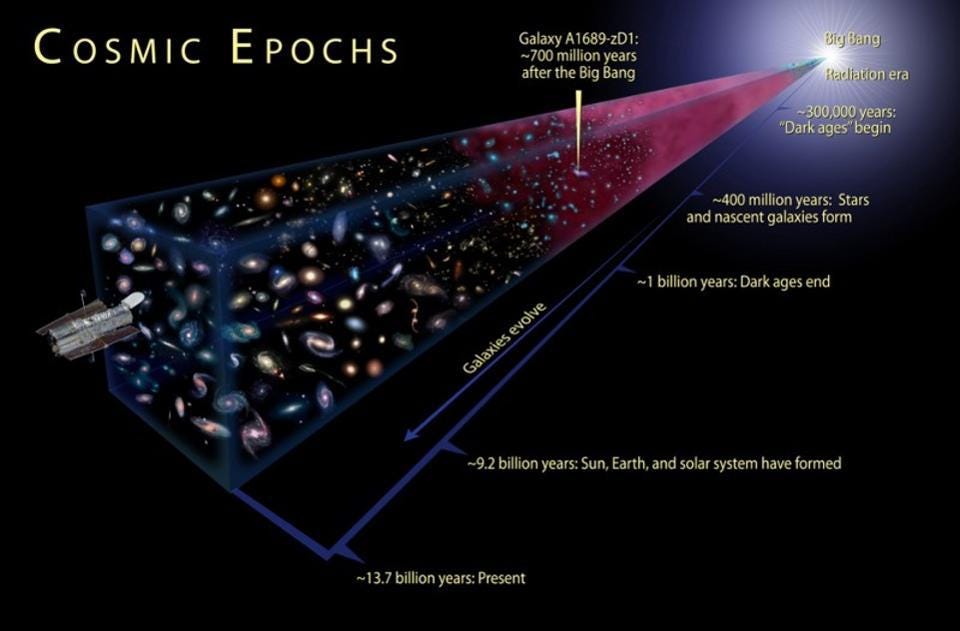How old is the universe in years 13 8 billion years old

How old is the universe in years? 13.8 billion years old.

The age of the universe has been a subject of scientific investigation and debate for centuries. Through meticulous research and advancements in technology, scientists have determined that the universe is approximately 13.8 billion years old. This estimation is based on a complex array of evidence derived from multiple scientific disciplines, such as cosmology, astronomy, and physics.
Cosmologists study the origins, evolution, and overall structure of the universe. By analyzing the distribution of galaxies, the cosmic microwave background radiation, and the expansion of space itself, scientists have developed a remarkable framework for understanding the age of our universe. These observations align with the concept of the Big Bang, a theory that postulates the universe originated from an infinitesimally small and dense point around 13.8 billion years ago.

One of the key pieces of evidence supporting the age of the universe is the cosmic microwave background radiation (CMBR). This faint, uniform radiation fills the entire universe and is considered a remnant from the early stages of its existence. An analysis of the CMBR reveals that it originated around 380,000 years after the Big Bang, providing crucial insights into the universe’s age.
Additionally, scientists utilize the redshift of distant galaxies to estimate the expansion rate of the universe. This redshift is a phenomenon where light from an object appears more “red” than expected due to the stretching of space caused by its movement away from us. By measuring the redshift of numerous galaxies and determining their distances, scientists have been able to calculate the rate of cosmic expansion. Working backward from this rate, they arrived at an estimated age of 13.8 billion years.
Moreover, scientists rely on the measurement of the Hubble constant, named after the American astronomer Edwin Hubble, who first discovered the universe’s expansion. By studying the relationship between the distance and relative velocity of galaxies, Hubble developed a constant that represents the expansion rate. Recent measurements of the Hubble constant, using advanced telescopes and cutting-edge techniques, have further strengthened the estimation of the universe’s age at around 13.8 billion years.
In conclusion, extensive research and scientific observations have led us to determine that the universe is approximately 13.8 billion years old. This estimation is based on a combination of evidence, such as the cosmic microwave background radiation, the redshift of distant galaxies, and the measurement of the Hubble constant. While the exact age may still contain some uncertainties, the prevailing scientific consensus considers 13.8 billion years as a highly accurate approximation of the age of our vast and awe-inspiring universe.
Sources:
Tags
Share
Related Posts
Quick Links
Legal Stuff

